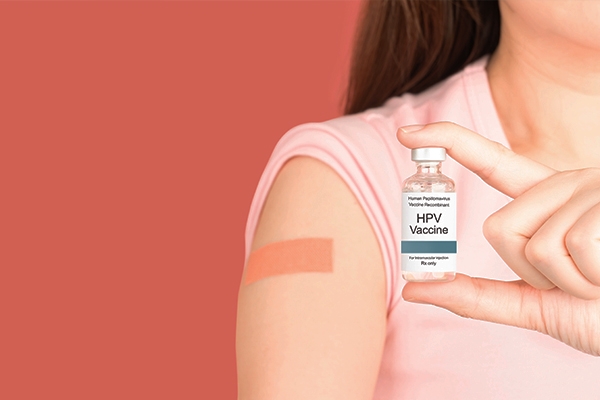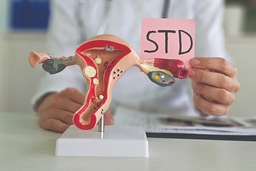Understanding Genital Warts: A Common STIs Explained

Many people feel embarrassed, anxious, or even fear being rejected sexually.
However, it’s important to remember that genital warts are one of the most common sexually transmitted infections (STIs). They are caused by the Human Papillomavirus (HPV).
Nearly all sexually active individuals will be infected with at least one type of HPV at some point in their lives.
How is it transmitted?
Genital warts are highly contagious and can be transmitted in several ways, including:
- Skin-to-skin contact during vaginal, anal, or oral sex.
- Sharing sex toys.
- Direct contact with the genital fluids of an infected person.
Despite how easily they spread, many people don’t realize they’ve been infected because not all HPV infections cause noticeable symptoms.
What do genital warts look like?

Genital warts typically appear around the genital area, but they can also develop in the mouth or throat if you have oral sex with someone who is infected.
Their appearance can vary from tiny, barely visible bumps to larger growths that resemble cauliflower.
Common signs to watch out for
- Small, flesh-colored (or differently pigmented) bumps in the genital area.
- Clusters of warts that look like cauliflower.
- Itching or discomfort around the genitals.
- Bleeding during sexual intercourse.
Genital warts may appear on the vulva, vaginal walls, cervix, penis, scrotum, anus, or the skin between the genitals and anus.
Because they can resemble moles or ordinary warts, a medical examination is strongly recommended to get an accurate diagnosis.
How are genital warts diagnosed?
Doctors can often diagnose external genital warts by simply examining them. However, if the warts are in less visible areas, further tests may be necessary, such as:
- Pap smear and pelvic exam to detect changes in the cervix.
- Colposcopy, which allows a closer view of the vaginal and cervical areas and may include a biopsy.
- Anoscopy, to inspect the inside of the anus if internal warts are suspected.
If you suspect you may have genital warts, it’s essential to consult a healthcare provider. Some other conditions can look similar to genital warts, so proper diagnosis is critical.
Can genital warts go away on their own?
In some cases, genital warts may disappear without treatment, as the immune system fights off the HPV infection.
However, warts can also grow, spread, or cause discomfort.
Removing the warts may reduce the risk of transmission, but this does not mean the HPV is completely cured.
Treating genital warts only removes the visible symptoms—not the virus itself.
How are genital warts treated?
Treatment depends on the location and number of warts. Standard treatment options include:
- Chemical treatments applied by medical professionals to stop wart growth.
- Prescription creams you can apply at home over several weeks.
- Cryotherapy which freezes the warts with liquid nitrogen.
- Electrocautery, which uses electrical current to burn off the warts.
- LEEP (Loop Electrosurgical Excision Procedure) cuts the wart using a wire and electric current.
Healthcare providers typically use local anesthesia to minimize discomfort.
Each method has pros and cons, so it's essential to discuss the best option with a medical professional.
After treatment:
- Keep the treated area clean.
- Avoid scratching or touching the area.
- Wash your hands after touching the infected area.
- Avoid sexual activity if there is still pain or if healing isn’t complete.
- Use a cold compress or over-the-counter pain relievers to ease swelling or discomfort.
How can you prevent genital warts?

Prevention is always better than a cure. Here are some practical ways to reduce your risk:
1. Get the HPV vaccine
The HPV vaccine is one of the most effective ways to prevent cervical cancer and other HPV-related cancers.
It is recommended for girls and boys aged 9–14, ideally before becoming sexually active, but it can still be given up to age 45.
There are two types of vaccines available: HPV-4 and HPV-9.
2. Use condoms during sexual activity
While condoms don't provide complete protection against HPV, they significantly reduce the risk of transmission and also protect against other sexually transmitted infections (STIs).
3. Get regular sexual health check-ups
Routine STI screenings are critical if you are sexually active with more than one partner.
Genital warts are a common condition and not something to panic about.
With the proper diagnosis, appropriate treatment, and consistent prevention measures, you can maintain a healthy and active sex life, free from fear and stigma.
At GWS Medika, you can receive the HPV vaccine in a safe and comfortable environment. The procedure is carried out by experienced medical professionals, following service standards that prioritize your safety and comfort.
GWS Medika is committed to providing clear education, patiently answering your questions, and ensuring you feel at ease throughout the process.



